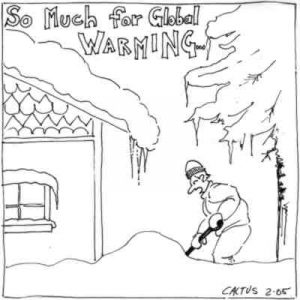Review by Lynda La Rocca
Death – February 2005 – Colorado Central Magazine
when the dying speak – how to listen to and learn from those facing death
by Ron Wooten-Green
Published in 2001 by Loyola Press
ISBN 0-8294-1685-4
THIS BOOK, written by a Catholic lay minister and hospice chaplain, reminded me of that old saw about Chinese food: It’s not filling enough, so almost immediately after eating it, you’re hungry for more.
Don’t get me wrong; this is not a bad book. I just wish that, given the depth of its premise, it had actually plumbed those depths.
Granted, the author explicitly states on page 110 that “…the purpose of this book is not to explain but to report.” And so Crestone resident Ron Wooten-Green primarily relates anecdotes about the words, visions, and experiences of the dying–including his own wife Dawn–and the reactions of those who witness and/or assist them in their transition. These stories are interspersed with Biblical passages, excerpts from the writings of poets and theologians, references to popular movies, and chapter-ending “questions for reflection and discussion.”
And that’s all fine, as far as it goes. But I suspect that the majority of readers drawn to this subject–which is frightening and difficult for some, awesome and enlightening for others–are eager to sink their teeth into more insightful writings. The pioneering work of Dr. Elisabeth Kübler-Ross, which Wooten-Green cites several times in his own book, certainly comes to mind here.
Also, those seeking solace from the agony of a friend or loved one’s sudden, violent, or accidental death may want to look elsewhere, because when the dying speak focuses on people who are leaving this plane of existence slowly, due to illness.
SO WHY READ THIS BOOK? One major reason is that it gently leads us to recall our own experiences with the dying, in the process generating “Aha!” moments that are both startling, yet comforting. For me, a major realization came through Wooten-Green’s observation that the dying are often visited by entities that help them make their transition into the next world.
In chapter four, listening for the silent witnesses, Wooten-Green describes “… an event of the dying that is so common it is nearly predictable: the profound experience of seeing deceased friends, relatives, or even a God figure at one’s bedside.”
My father’s family simply called it “the dream.” After several family members, suffering from what proved to be terminal illnesses, reported “seeing” or dreaming about an already-deceased relative, the rest of us came to view these revelations as a sign of their impending death.
My father, who succumbed to lung cancer 20 years ago at age 57, lived only about a week after waking up from a nap and announcing to my brother and me that he’d just seen Uncle Jerry. This particular uncle had died 21 years earlier; the thought that he was now lurking about our father’s hospital room was, to put it mildly, rather unsettling. My brother and I reacted to this news in pretty much the same way, starting as if we’d received an electrical shock, then staring mutely at each other. As soon as we were back in the hallway, we both began talking about, and trying to discount, “the dream.” But we both knew that our father would be leaving soon.
I’ve related this story to a number of non-relatives since Daddy’s death, but none had ever encountered, or even heard of, anything similar. So Wooten-Green’s book made me feel that my brother and I, and our family, are far from alone in our experiences.
Wooten-Green also relates tales of dying individuals gazing intently at, or having conversations with, entities that are invisible to those around them. That’s because the dying, he writes, can see what the living are as yet unable to perceive. Again, I thought of Daddy, staring fixedly from his hospital bed at what appeared to be–nothing. When I asked what he was doing, he replied, “I’m phalanxing.”
Now, my father was a well-educated, exceptionally intelligent man with an extensive vocabulary. But I’d never heard him use that word before. I was even unsure of its meaning, thinking vaguely that it had something to do with the military, although I had no clue as to what.
So I wrote down his comment and, back home, I looked up “phalanx,” which my father had used as a verb. In my dictionary, it was a noun meaning, “a body of heavily armed infantry in ancient Greece formed in close, deep ranks and files.” As I continued reading, I discovered to my surprise that a phalanx can also be “a massed arrangement of persons, animals, or things … organized body of persons.”
EVEN IN THE MIDST of my anguish, I believed and understood then, as I do now, that my father was seeing beings that were gathering to help him make his transition. I’d like to think that Wooten-Green would agree with my assessment.
In talking to my husband Steve Voynick about this book, I mentioned that Wooten-Green says we have to learn to interpret the words of the dying, listening in “a different language” to the sometimes cryptic, symbolic, or metaphorical messages they send.
Steve suddenly recalled a strange comment made by a close friend just a month before his death from cancer in December 2003. A voracious reader, W.R.C. eagerly awaited the books Steve sent him on topics relating to their shared interests–history, geology, and science, to name a few. The two of them maintained this book exchange for years, each devouring the selections sent to him by the other.
Then, in what turned out to be one of W.R.C.’s last letters, he thanked Steve for a book, adding, “But I won’t have time to read this.” Although puzzled by that assertion, Steve shrugged it off because, at the time, neither he nor any of W.R.C.’s other friends knew that W.R.C. was ill.
While shocked and saddened by his death a month later, Steve felt that W.R.C. had lived and died as he saw fit, choosing neither to burden, nor seek comfort from, his loved ones. Now, though, we wonder if his remark wasn’t perhaps meant to be an opening or an invitation to a dialogue that, unfortunately, was never entered into.
All in all, when the dying speak is a helpful addition to the library of literature on death and dying. If only it had spoken longer and delved deeper….


